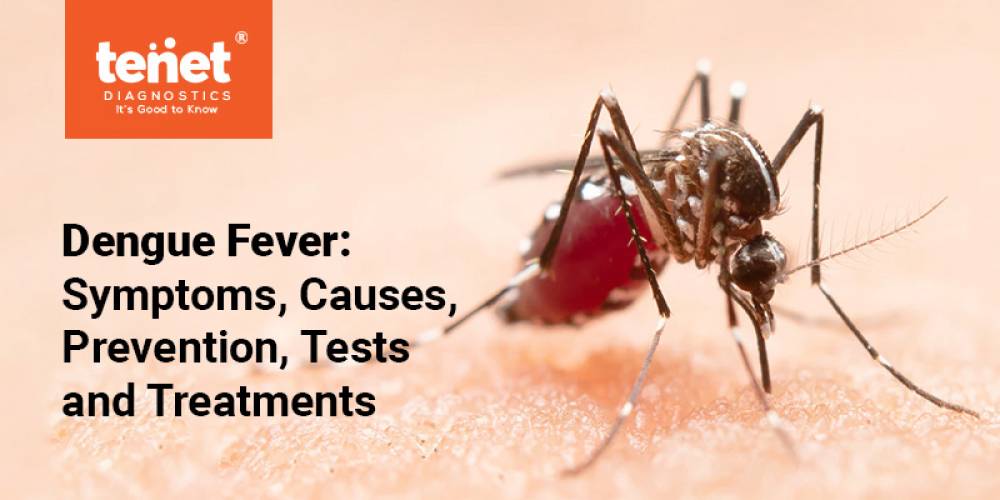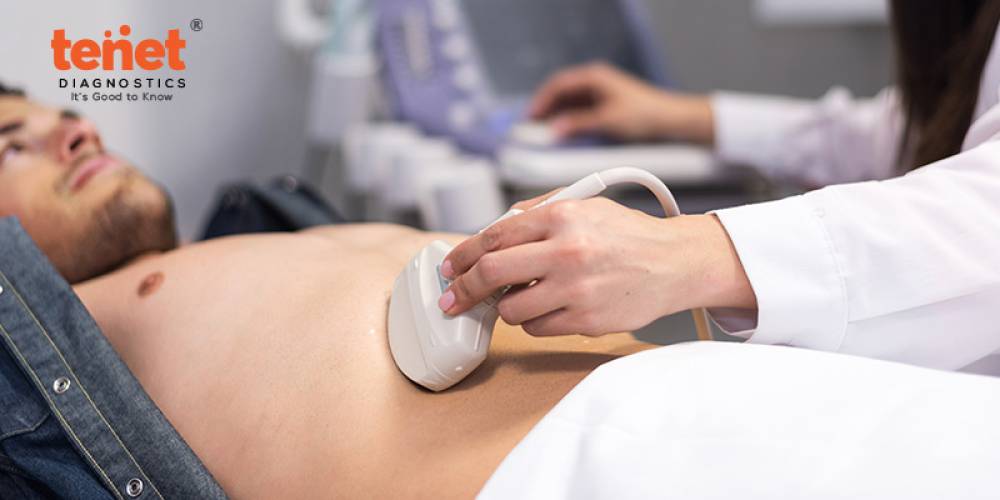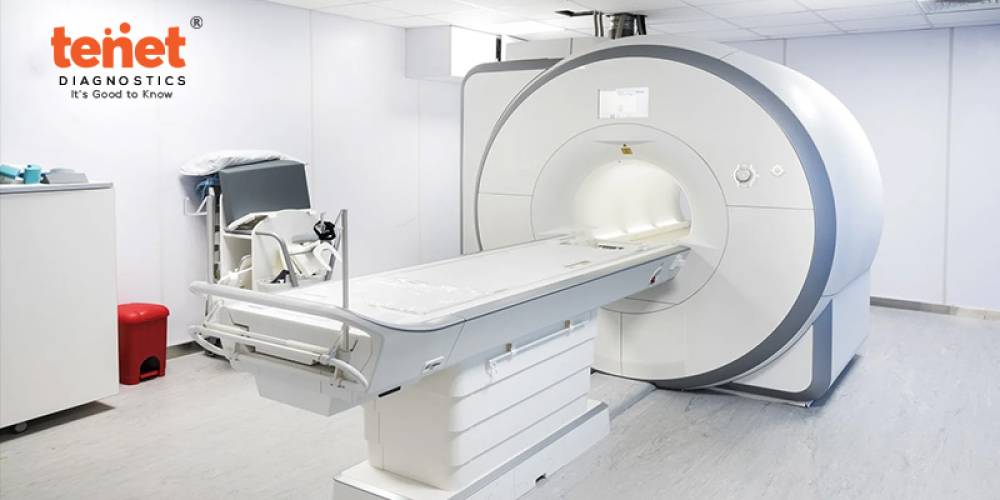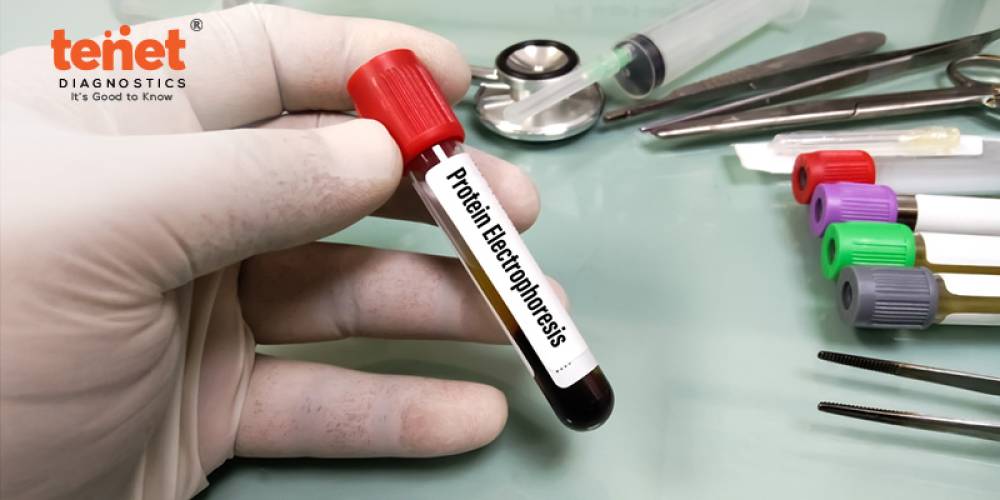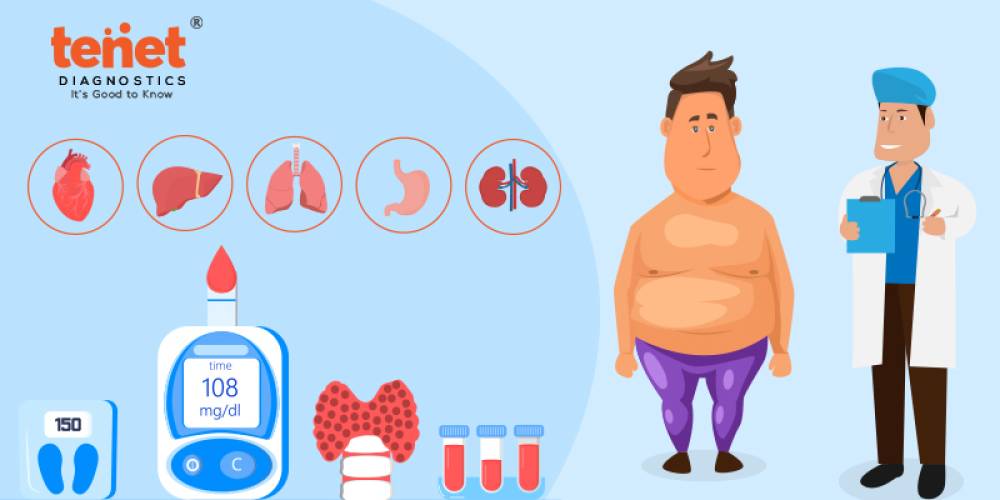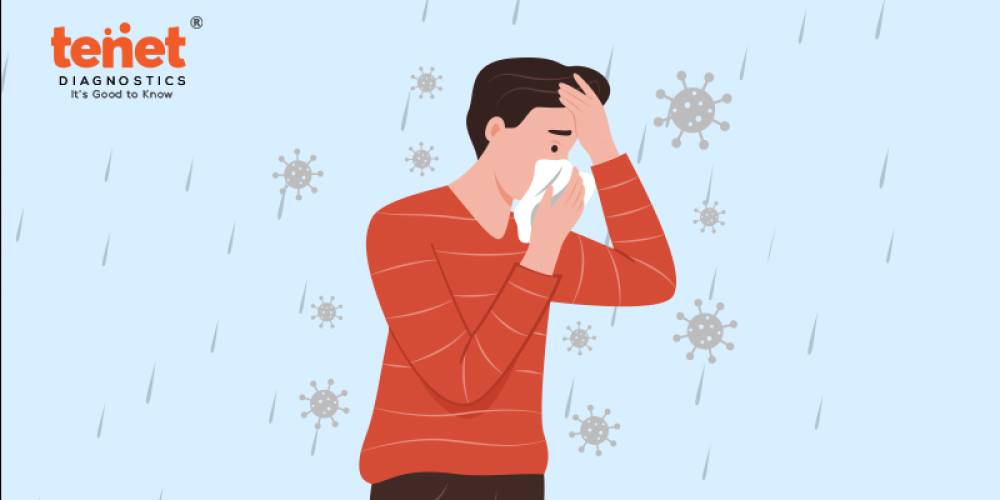Dengue fever is caused by the dengue virus and is spread by the female Aedes mosquito. A person may contract dengue fever more than once. Considering that the symptoms of the fever last for several days, it is a dangerous fever. The key factors influencing the growth and spread of dengue mosquitoes are stagnant water and contaminated stored water. The Dengue NS1 test detects the non-structural protein NS1 of the dengue virus and helps with the diagnosis. Dengue fever can be caused by any of the four closely related dengue viruses. It is a severe and deadly mosquito-borne illness. These viruses are related to the ones that cause yellow fever and West Nile infection. Tropical regions of the world are where most cases occur. Dengue is not contagious from person to person, except when passed from a pregnant woman to her kid. The initial infection usually has mild symptoms, but if you develop a second infection with a different strain of DENV, your chance of serious complications rises.
The Symptoms of Dengue:
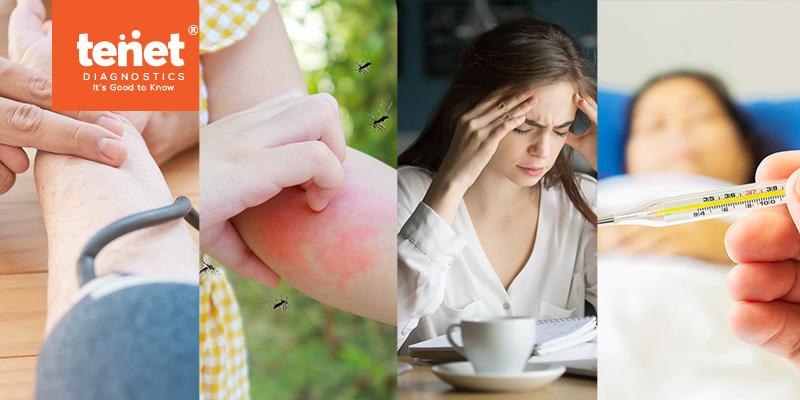
Each person experiences dengue illness differently. When symptoms do appear, they typically start four to ten days after being bit by an infected mosquito and may be confused with other diseases, like the flu. Dengue fever may result in a high fever of 104 degrees Fahrenheit (40 C). Some common dengue fever symptoms are:
• Fatigue
• Skin rash
• Vomiting
• Headache
• High Fever
• Low blood pressure
• Abdominal discomfort
• Muscle and joint pains
• Mild bleeding from gums and nose
The majority of people recover in roughly a week. However, in extreme circumstances, symptoms could worsen or even become fatal. This condition is referred to as severe dengue, dengue hemorrhagic fever, or dengue shock syndrome.
With severe dengue, your blood vessels are damaged and start to leak. The platelets in your blood also decline. This could lead to shock, internal hemorrhage, organ failure, and even death. The following are symptoms of severe dengue:
• Fatigue
• Continual vomiting
• Severe stomach pain
• Irritability or restlessness
• Difficult or rapid breathing
• Bleeding from the nose or gums
• Vomiting or urinating with blood in it
• Intradermal bleeding that resembles bruising
Severe dengue fever is a fatal medical emergency. Suppose you experience any of the symptoms and have dengue or reside in an area where dengue is widespread. In that case, it is best to get tested at the Tenet bestdiagnostic center in Hyderabadand visit the closest ER immediately.
Dengue fever Causes
Dengue fever is caused by one of four kinds of dengue viruses. Being around someone with dengue fever won't cause you to contract it. In contrast, mosquito bites are how dengue disease is transmitted.
The two mosquito species that spread dengue viruses most often are common in and around residential areas. When a mosquito bearing the dengue virus bites you, the virus enters your bloodstream and multiplies. As a result, you may feel ill due to both the infection and the immune system's reaction.
After the recovery from dengue fever, you are immune to the virus type that caused your infection for life, but not to the other three types that cause dengue fever. This implies that one of the three different virus types could infect you once more in the future. If you contract dengue fever a second, third, or fourth time, your risk of acquiring severe dengue fever rises.
Complications of Dengue Fever
Internal bleeding and organ damage are potential effects of severe dengue infection. In addition, shock can result from dangerously low blood pressure. Severe dengue illness occasionally results in fatalities.
Those who contract dengue fever while pregnant run the risk of passing the illness on to the unborn child. Additionally, kids of pregnant women who contract dengue fever are more likely to be born prematurely, with low birth weight, or with fetal distress.
Testing of Dengue Virus:
1.jpg)
Many health departments and commercial test centers perform Dengue diagnostic testing. It is best to take the test as soon as you experience the symptoms. The Dengue fever tests are-
• Dengue Antigen (Ns1) Rapid, Serum
• Dengue (IgG & IgM), ELISA Serum
• Dengue RNA Detection By RT PCR
• Dengue Ig G & Ig M Antibody Rapid, Serum
• Dengue NS1 Ag - ELISA, Serum
A blood test to detect the virus or antibodies can help doctors diagnose dengue infection. Inform your doctor immediately if you are unwell after visiting a tropical region. This will make your doctor determine whether a dengue infection might have contributed to your symptoms.
Dengue Fever Treatment
Dengue infection cannot be treated with a specific medication. Use acetaminophen-containing painkillers and avoid aspirin-containing medications if you suspect you have dengue fever since they could worsen bleeding. Additionally, you need to get enough rest, hydration, and medical attention. In the first 24 hours after your fever has subsided, if your symptoms worsen, you should visit a hospital immediately to be evaluated for complications.
How to Prevent Dengue Fever?
The best approach to avoid contracting the illness is to prevent mosquito bites, primarily if you reside in or are visiting a tropical region. This includes taking precautions and working to reduce the mosquito population.
Prevent Mosquito Bites
The World Health Organization emphasizes that while the vaccination can help prevent dengue fever in regions where the virus is common, it is ineffective on its own. The primary techniques for stopping the spread of dengue disease are avoiding mosquito bites and managing the mosquito population.
• Even inside, use insect repellents.
• Wear long sleeves and long, tucked-in pants when you're outside.
• Use the air conditioning if it's available indoors.
• Ensure the screens on your doors and windows are solid without any gaps. Use mosquito netting if your sleeping quarters aren't air-conditioned or screen-enclosed.
• See your doctor if you exhibit dengue symptoms.
Eliminate mosquito breeding grounds to lower the mosquito population. These could be used flower pots, cans, or old tires that catch the rain. Water bowls for pets and outdoor birdbaths should be changed frequently. If someone in your household developsdengue fever, take extra measures to protect yourself and other family members from mosquitos. Infected family members could infect others in your home through mosquito bites.
What is the dengue ns1 test price in Hyderabad?
The dengue ns1 test cost is around 1000 INR in Hyderabad.
The Final Word
Dengue affects hundreds of millions of individuals each year. The idea of severe dengue might be frightening, especially though most cases are moderate or midly symptomatic. Nevertheless, you can make efforts to reduce your risk of mosquito bites and be cautious of the warning signs of severe dengue. If you develop severe dengue illness, you will probably recover as long as you obtain immediate medical care.

